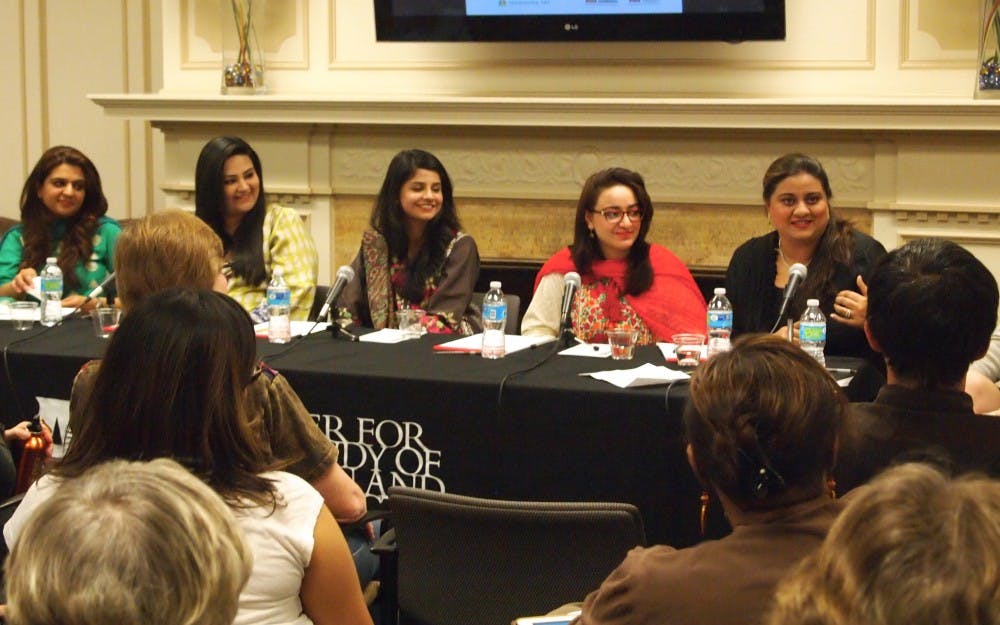While Pakistan’s Malala Yousafzai continues to promote gender commentary across the globe, ASU’s Project Humanities organized a forum with five Pakistani women to discuss the gendered stereotypes of their country.
The discussion, titled “Beyond the Hijab: Pakistani Women’s Perspectives,” addressed how mainstream media broadcasts an extreme view of the country’s gender norms, said Carolyn Forbes, the assistant director of the Center for the Study of Religion and Conflict.
“One of the most prominent stereotypes is that women of those societies are oppressed and victimized,” she said. “Media likes conflict and media likes extremes, and to that extent, these kinds of stories become what we understand of (Pakistani) women.”
Through these stereotypes, Forbes said Americans misunderstand the role of women in Pakistan.
“We miss, for example that there are Islamic feminists and that there are women who have been in leadership positions in Muslim countries,” she said. “There are actually more women in the legislature in Pakistan than in the U.S. Congress.”
Zahra Hamdani, a lecturer in English Literature at the Kinnaird College in Pakistan and one of the night’s panelists, said the average American’s stereotype of Pakistan is as skewed as the average Pakistani’s understanding of America.
“Back in Pakistan, we know about the States based on what we watch on television programs,” she said. “For example, we thought that America does not have very strong family structures. … We think that, when you are 18, you are literally asked to leave your parent’s home and are not supported.”
Similarly, Hamdani said Americans believe women are always oppressed in her country.
“We always think of just one side of Pakistan, where women are always subjugated and disciplined by men and don’t have their say in any matters,” she said.
However, while some women face oppression in Pakistan’s rural areas, Hamdani said she and many other women make their own decisions.
“We want to tell people that we have disagreement in Pakistan,” she said “We have empowered women, we have educated and enlightened women, who can make their own decisions and dress the way they want to.”
Much like Pakistani women have more options in the workplace, they also have the choice to wear the hijab, a symbol of Islamic modesty, Hamdani said.
“The hijab is like a metaphor,” she said. “When we say ‘beyond the hijab,’ we are in no way trying to disrespect it. We are trying to say that there are many in the hijab who are doing things which enlighten women, too.”
Those who choose to wear the hijab are thus not automatically more repressed than others, Kanza Javed, another panelist from Kinnaird.
“A Pakistani woman is strong, she is capable of anything and, whether she covers or not, it does not mean she’s repressed,” she said. “It is a choice she makes.”
Javed said Pakistani women are not ashamed of their culture, and that discussions about education and the hijab foster better cultural understandings.
“I want people to know that, the next time you see a Pakistani woman on the street, go ahead and talk to her,” she said. “She won’t be offended. She will probably be a very friendly person.”
Reach the reporter at aplante@asu.edu or follow @aimeenplante on Twitter.
Like The State Press on Facebook and follow @statepress on Twitter.




